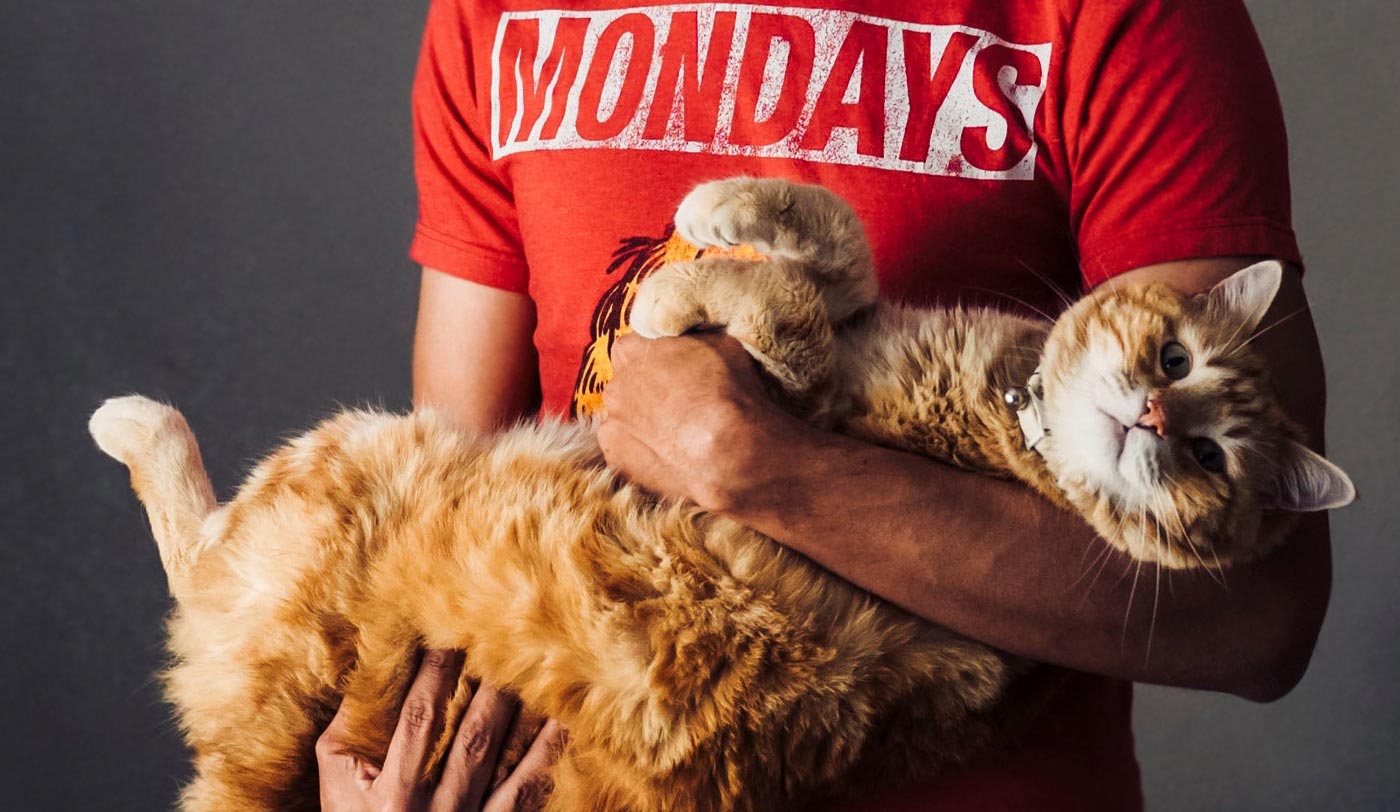If you’re spending more time at home, you might be cleaving to activities and life changes that had formerly not seemed overly compelling, like crochet, online trivia, and binging on reality TV shows. But one lifestyle update has spiked in popularity in recent weeks: fostering and adopting pet cats and dogs. That’s a good thing, because having a furry friend at home pays real dividends for both your mental and physical health.
If you’re looking to adopt or foster a dog or cat, you’re not alone. Since the beginning of the COVID-19 health alert, animal shelters have seen dramatic jumps in demand for foster care and adoption—up 70%, for example, in New York and Los Angeles since the beginning of 2020. According to US News and World Report, Denver-based Dumb Friends Animal Shelter (yes, that’s their real name) has a 2,000-person waiting list for animal fostering.

What’s the difference between fostering and adoption?
When you adopt a dog or cat, you become the new, official owners (or pet parents, if you prefer). Fostering, on the other hand, is taking temporary care of a dog or cat until a permanent home is found. Shelters and rescues seek out fosters to free up space to rescue other animals, or so additional care can be given to an animal that it might not get in a shelter setting (for example, isolating a pet until an eye infection clears, or taking care of very young puppies or kittens). Fostering is also a good way to determine whether pet ownership is for you, or if a particular animal is compatible with other pets you might have.
If you are a cat person, or considering becoming a cat person, springtime can be a very good time to become either a permanent or temporary pet parent. Spring is known as “kitten season,” when feral and stray cats breed, producing a bumper crop of tiny, fuzzy, homeless kittens. Fostering pregnant cats or tiny kittens is a great way to help shelters and rescues re-home more cats and kittens, and to enjoy the temporary benefit of cat companionship.
As an added bonus, most foster agencies will take care of any necessary vet care during the foster period. Of course, you might very well become what’s called a “foster fail” and end up adopting your furry houseguest.
What are the mental benefits of pet ownership?
Pets have been proven to produce a variety of recognized mental and physical health benefits. Interaction with pets can reduce stress, improve the production of oxytocin, a hormone that instills feelings of calm and connectedness, and cut down on feelings of anxiety, isolation, and depression. Reduction in mental distress and anxiety can also reduce the strain on the immune system and reduce blood pressure, improving physical health as well.
Dogs and cats can also directly impact physical wellness as well. Even when socially isolating, most dogs require outside walks for bathroom purposes, which, as long as you follow local and national health regulations, is OK to do, if you do not have personal outdoor space, according to the American Kennel Club (AKC).
Cats are indoor creatures (please don’t let your cat outside), but, as fond as they are of stretching, can make terrific indoor yoga or stretching companions. Just don’t get jealous of their A+ cat pose!

Other athletic activities and games you can play with your pet—that might also serve as a workout for you—include tug of war (probably better suited for dogs) and fetch. While fetch is normally thought of as a dog’s game, cats can also be surprisingly interested in playing fetch, as part of their natural hunting instinct.
Pets and COVID-19
One question that arises with pet ownership is whether dogs and cats can catch and transmit COVID-19. According to the American Veterinary Medical Association, there have been no reported cases of dogs or cats catching COVID-19 in the United States. However, as with any surface, germs and viruses can potentially remain on surfaces, including furred ones, for hours. If you suspect or know that you have been diagnosed with COVID-19, it is best to minimize contact with animals.
Marcy is the SVP of People and Communications at Zeel. In addition to overseeing the humans of Zeel, Marcy has written about workplace topics for more than 20 years both at Zeel and as VP of Content for Vault.com, a career information web site and publisher.







